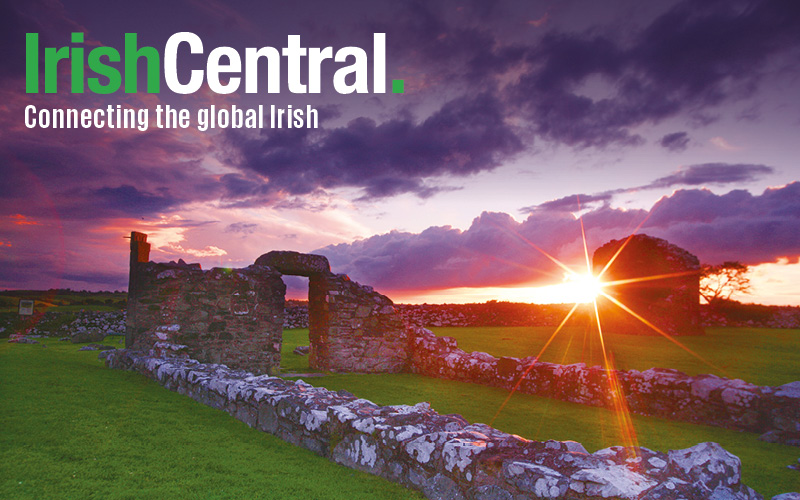Sometimes English historical oversight is so deliberate it must be calculated, we Irish suspect.
During the Great Hunger one million Irish died from starvation, one million fled but the family of the architect of the genocide doesn't think that's important
enough to mention when discussing family sins.
It's like talking about Hitler's family and not mentioning Der Fuhrer.
This week, Irish Famine relief overseer Charles Trevelyan - whose name has long been a pejorative in Ireland - is back in the news after a report in The Guardian told of how his current heirs were “shocked” to find their family name in a slavery database.
The Trevelyan family's involvement in slavery in the 18 and 19th centuries “amounts to crimes against humanity” John Dower, a family member, said.
The Guardian reported that Dower was working on the family history alongside his relative Humphry Trevelyan when they found the Trevelyan name repeatedly appearing in the University College London slavery database.
“What I read shocked me as it listed the ownership of 1,004 slaves over six estates shared by six of my ancestors,” Dower told the press.
“I had no idea,” he said. “It became apparent that no one living in the family knew about it. It had been expunged from the family history.”
“I was more than shocked, I was badly shaken,” he continued. “I was under the impression that I came from a benevolent, public service-facing family.”
This last statement will inspire guffaws from anyone with a glancing familiarity with Irish history. Benevolent? The British Empire? Public service? Charles Trevelyan?
Please stop, you'll make us giddy. Sometimes English historical oversight is so egregious it must be calculated, we Irish suspect.
Or at least that's what we tell ourselves until we remember the truth is actually worse – we often don't signify to them at all. The suffering of this nation at their hands, for centuries, is often minimized when it is not being disregarded there.
It takes a special kind of pathology to export food from a starving country as its people literally drop in the streets, but nineteenth-century colonial administrator and civil servant Charles Trevelyan possessed it.
Assistant Secretary to the English Treasury in the 1840s, he oversaw the British exchequer, where for a time he saw his role as limiting the nation's financial exposure to any funding relief for the famine-hit Irish poor.
Long banished to the worst land and the merest holdings, and then charged punishing rents to live in their own country, the Irish were predictably devastated by the repeated failure of their subsistence potato crop year after year from 1845 on.
“The real evil with which we have to contend,” Trevelyan famously wrote, “is not the physical evil of the Famine, but the moral evil of the selfish, perverse and turbulent character of the people.”
So it wasn't enough that the English had purloined our land, liberty, and livelihoods, Trevelyan then blamed us for the theft.
Read more
Dower's cousin Laura Trevelyan discovered when that her ancestor Louisa Simond married Sir John Trevelyan in 1757, she brought her father’s lucrative partnership in sugar cane plantations in Grenada with her.
“My own social and professional standing nearly 200 years after the abolition of slavery had to be related to my slave-owning ancestors, who used the profits from sugar sales to accumulate wealth and climb up the social ladder,” she told The Guardian.
Dower then added that a full, formal, written apology – as well as reparations efforts – were the family's first step at making things right: “We, the undersigned, write to apologize for the actions of our ancestors in holding your ancestors in slavery,” it began.
“Slavery was and is unacceptable and repugnant. Its damaging effects continue to the present day. We repudiate our ancestors’ involvement in it.”
Interestingly, none of the current Trevelyans have mentioned – or apologized for – their famous ancestor's involvement or culpability for the worst excesses of the Irish famine years.
There has been no talk from the current Trevelyans of any full, formal apology – or reparation efforts – to the Irish people.
Here is the truth: Charles Trevelyan presided over the worst social disaster in Europe in the 19 century. The Irish Famine killed more people than a low-level nuclear attack. But to protect the British exchequer he had food and grain exported from Ireland under armed guard in the worst years of the Great Hunger.
To talk of the rough work the Trevelyan family did to enrich themselves and omit its most infamous member - and the provedentialist cruelty that animated his Irish “relief” policies - is the most glaring of missed opportunities.
How sincere can this new Trevelyan apology tour be, if it whistles right past our overflowing Irish graveyards?




Comments